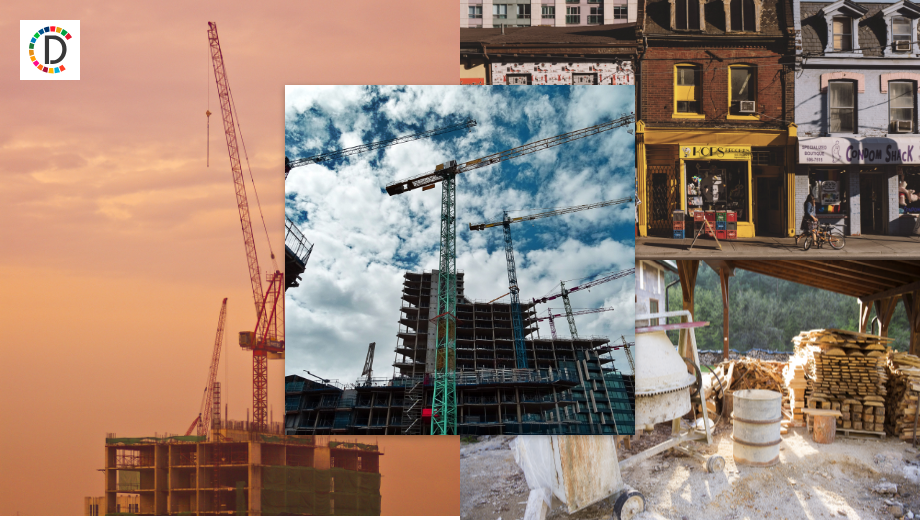Energy conservation building code important for India's clean energy transition: WRI

- Country:
- India
Cities can support India's transition to clean energy by enforcing the 'energy conservation building code' (ECBC), which describes measures to encourage energy efficiency in buildings, according to an analysis.
Financial support from the central government can help share states' burden and reduce upfront costs of developing an electric transport infrastructure, experts from New Delhi's WRI India told PTI during an event at India Habitat Centre where they presented the report.
The launch event was part of 'Connect Karo', the environment think tank's annual flagship event that spanned two days earlier this week.
Launched in 2007, ECBC was developed by the Bureau of Energy Efficiency (BEE), under the Ministry of Power, and aimed at promoting energy efficiency in the buildings sector. An updated version was brought out in 2017 and further amended in 2020.
Authors of the report analysed actions taken in transitioning towards clean energy in 35 cities across 10 states -- published articles, peer-reviewed papers, news reports, city corporation websites were among the literature seen for gathering information.
Ten cities, including Bengaluru, Chennai, Delhi and Kochi, were finally analysed for actions, including strategies that promoted energy-efficiency in buildings. Aspects, such as per capita electricity consumption and percentage of street-lights gauged as energy-efficient, were also looked at.
Lead author Sumedha Malaviya, head of energy programme-building decarbonisation, told PTI, ''We have looked at multiple aspects of transitioning to clean energy, including renewable energy implementation and energy efficiency.'' ''Each aspect was found to have a different set of policy drivers, which varied across sectors. For example, in the buildings sector, a key policy driver noted was adhering to building codes, such as the ECBC, which has been notified in multiple states.'' The authors said in the report, ''Six out of the 10 studied cities are in states that have notified the ECBC, but none of these cities are enforcing the code. There is a gap in city implementation capacity and the requirements under state-led building rules and regulations.'' ''Only four cities -- Pune, Rajkot, Surat, and Nagpur -- have initiatives to promote energy-efficient buildings'', even as they are located in states which have not notified the ECBC, the team said.
Looking at public transport systems, Delhi and Bengaluru were among the cities where electrifying the system has penetrated and achieved a certain scale -- which can be attributed to national policies and programmes, supported by state policies, the authors said.
''Electric vehicles (EV) policies in states can differ -- some have a separate policy for electric vehicles, while others may have an EV component in a larger, overarching transport policy,'' Malaviya said.
Delhi's EV policy is comprehensive and can be an example for states across India, she said.
''It looks at incentives for purchasing EVs, capacity building and road maps - how many EVs will be in the city for the next five, 10 and 15 years and how to plan for that kind of a vehicle volume. The city also provides a good charging infrastructure,'' Malaviya told PTI.
She added that given how electric vehicles are expensive, incentives and programmes to support the financing of electric buses from the national government was required, which the states have then been able to take further.
''The Centre-state coordination is important more from the point of view of reducing upfront costs of developing an electric vehicle infrastructure,'' the lead author said.
The authors also found an ''overreliance'' on rooftop solar as ''being promoted as the single most important technology for urban energy transition'', with relatively little attention to energy efficiency.
Chennai and Pune were found to be among the cities having achieved a 100 per cent energy efficiency in street-lights, with Bengaluru and Delhi at 88 per cent and 65 per cent, respectively.
Further, among the cities analysed, Surat was the only one to have a heat resilience strategy that described energy efficiency measures to mitigate heat, the team said.
(This story has not been edited by Devdiscourse staff and is auto-generated from a syndicated feed.)
ALSO READ
Next Bharat Ventures Hosts "Next Billion Forum 2025" in Bengaluru, Launches 3rd Cohort of Impact Startup Residency
Shriram Properties aims Rs 500 cr revenue from 6.5-acre JV project in Bengaluru
Second Shilp Samagam Mela 2025 being held in Bengaluru from Sept 5-14
Tejasvi Surya Challenges Bengaluru Metro Fare Hike: A Call for Transparency
IISc Bengaluru best among research institutions, IIT Madras at second spot: Centre's NIRF ranking.










